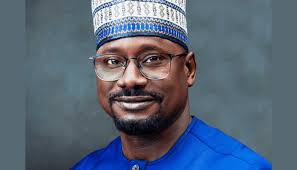Nigeria at 65: Not tet Uhuru

When Nigeria, a former British colony, became an independent nation of 35 million people, the Union Jack was lowered for the new national flag, green-white-green, hoisted at 12:01 a.m. on Saturday, 1 October 1960. Nigerians believed the march to nationhood would be an Eldorado, a smooth ride to prosperity.
Sir Abubakar Tafawa Balewa became the Prime Minister, while Dr Nnamdi Azikiwe was appointed Governor-General of the newly independent country, which adopted the parliamentary system of government.
A young parliamentarian, Tony Enahoro—also a journalist and editor of the Zikist newspapers—had moved the first motion for self-governance in 1953 at the age of 21. A further motion was proposed in 1959 by Sir Tafawa Balewa and passed. Under sustained pressure, the colonial governor, Sir James Wilson Robertson, announced that the British government had decided to grant Nigeria independence in 1960.
Thus, Enahoro became the first to move the motion for Nigeria’s independence, a struggle that was realised after several political setbacks and defeats in parliament. He is regarded as the “Father of the Nigerian State.”
At independence, Nigeria began with three regions: the Northern, Eastern, and Western regions, led respectively by Sir Ahmadu Bello, the Sardauna of Sokoto; Sir James Udochi Ibiam; and Chief Obafemi Awolowo.
The Mid-Western Region was created on 9 August 1963, after Nigeria became a Republic. It emerged from the Benin and Delta provinces, which had previously been part of the Western Region. This was the first state creation in the young Federal Republic of Nigeria.
The First Republic, led by Sir Tafawa Balewa, was accused by the military of corruption, tribalism, and kickbacks. In January 1966, the military struck, led by four young majors: Emmanuel Ifeajuna, Chukwuma Nzeogwu, Tim Onwuatuegwu, and Chris Anuforo, thrusting Nigeria into military rule.
The counter-coup of August 1966 ended the brief reign of Major-General Johnson Aguiyi-Ironsi, who was killed by another group of young officers including Murtala Mohammed, T.Y. Danjuma, Martins Adamu, and Adekunle Ademoyega. They installed Lt-Col Yakubu Gowon as Head of State.
It is worth noting that since independence, Nigeria has witnessed five military coups. Between 1966 and 1999, the country was ruled almost entirely by the military, except for the short-lived Second Republic of 1979–1983.
As Nigeria celebrates its 65th Independence Anniversary on Wednesday, 1 October 2025, it is clear that it has not yet reached the Eldorado of its dreams. The nation still struggles to survive as the so-called “Giant of Africa.” To borrow the words of the late musician Bob Marley: “In the abundance of water, the fool is thirsty.”
Nigeria, blessed with vast human and natural resources, continues to bleed, with citizens struggling to survive. Yet, with the emergence of the current administration led by President Bola Ahmed Tinubu, Nigerians are told there is light at the end of the tunnel.
At a press conference in Abuja on Monday, 29 September 2025, to mark the Independence anniversary, Mohammed Idris, Minister of Information and National Orientation said the federal government is “doing the needful,” describing President Tinubu as a committed and visionary leader, dismantling the stubborn clogs in the nation’s wheels of progress.
He noted that the number 65 is associated with the gemstone sapphire, symbolising loyalty, trust, truth, nobility, sincerity, beauty, and wisdom—qualities that define the Nigerian soul and spirit.
“President Tinubu is doing the needful; a committed, courageous and visionary leader, dismantling stubborn clogs in the wheel of our national progress,” Idris said.
He explained that under the Renewed Hope Agenda and its eight priority areas, the president is laying the foundation for a national renewal anchored on prosperity, peace, and unity.
“That is why the theme of this 65th anniversary, All Hands on Deck, is a direct and heartfelt call to all Nigerians and our friends and partners around the world, to show understanding and commit to supporting these landmark reforms,” he said.
According to him, trade surplus is growing with contributions from the non-oil sector, inflation is declining, the currency is strengthening, food prices are falling, and external reserves are growing. “All of these,” he added, “are testament that we are on the right track.”
He announced that from January 2026, implementation of the Tax Acts Quartet would begin, expanding the revenue base while simplifying collection and reducing burdens on Nigerians. The reforms, he noted, would provide more resources to invest in health, education, infrastructure, agriculture, energy security, regional development, small businesses, youth, and national security.
Idris also said more than 500,000 students of tertiary institutions are already benefitting from the National Education Loan Fund (NELFUND), with tuition and upkeep covered by the federal government.
“Under President Tinubu, our nation is gradually recapturing the spirit of people-centred grassroots development,” Idris added, citing the establishment of five new regional development commissions and the creation of a supervising Federal Ministry for Regional Development.
He further highlighted ongoing road and transport infrastructure projects, revival of the 255MW Kaduna Power Plant, and the commissioning of three world-class oncology centres in Benin, Katsina, and Enugu, with three more nearing completion in Jos, Lagos, and Zaria.
On agriculture, Idris said the Bank of Agriculture has been recapitalised to the tune of N1.5 billion, describing it as the most significant boost to agricultural financing in Nigeria. He also cited the establishment of the Federal Ministry of Livestock Development to unlock the sector’s potential.
He maintained that the distribution of projects under President Tinubu has been equitable, ensuring that no region is left behind.
Idris also reflected on Nigeria’s role in Africa, recalling its support for liberation struggles and peacekeeping efforts. He said the country continues to assist others through the Technical Aid Corps and has remained a vanguard of democracy in West Africa.
“We acknowledge your sacrifices and understanding in the last 28 months, as President Tinubu has worked tirelessly to steady the ship,” he said. “It is now time for the entire country to reap the fruit of the seeds of reform that have been painstakingly planted. This administration is working for you, listening to you, and committed to ensuring that no Nigerian is left behind. Let us continue to believe in Nigeria, because together, we can make our country greater than ever before.”










